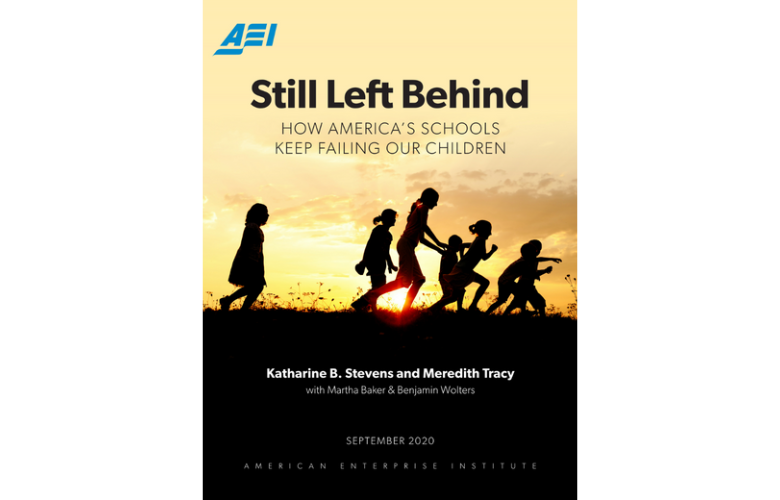Why Michigan Should Spend New Federal Funds on High-Quality Childcare — Not Universal Pre-K
By Katharine B. Stevens
OP-ED
February 27, 2019
For the past several months, Michigan has been caught up in an ongoing disagreement over how to spend an "unexpected windfall" of $63 million in federal child care funds. This is the state's share of an additional $2.4 billion for the Child Care and Development Fund approved by Congress last March to help low-income working families pay for child care starting at birth. On one side, some are suggesting that the extra funds should be used to subsidize child care for low-income children. On the other, some— most notably Detroit’s mayor, Mike Duggan—are pushing to spend them on universal pre-K for Detroit’s 4-year-olds instead.
Matt Gillard, head of Michigan's Children, recently described the dispute as an “interesting policy debate,” which it may well be. Interesting debate aside, however, actually spending Michigan’s federal child care funds on pre-K instead of child care would be a big mistake.
The first problem with the Pre-K plan is that using federal child care funds to pay for 4-year-olds to attend school is inconsistent with the funds’ intended use. As Lisa Brewer-Walraven, director of the Michigan Department of Education’s Child Development Division, stressed in a memo to the State Budget Office last October, Detroit Mayor Duggan’s pre-K proposal violates the eligibility requirements of CCDF; neglects the law’s mandate to focus on infants, toddlers, and young children with disabilities; exacerbates child care shortages for the neediest children; and limits the parental choice explicitly promoted by the law.
Further, as she noted, Detroit did not present “a clear case for 4-year-old need.” That would definitely have been a tough case to make, since widely available data clearly show that the city’s greatest need is for children from birth through age three. A 2017 report described Detroit as a "child care desert," estimating that 59 percent of children under age five live in neighborhoods with no licensed child care. That's roughly 29,000 young children—22,000 of which are under age four. And a 2016 report from the Kresge Foundation underscored that the crisis faced by low-income families with 4-year-olds, too, is inadequate access to subsidized child care, not pre-K.
Even if pre-K were a legally acceptable use of funds, it’s hard to see why that money should be handed over to the Detroit schools in any case. The Detroit public schools are the worst-performing in the nation—long failing exactly the disadvantaged children that CCDF targets. Teacher turnover is sky-high. One quarter of Detroit’s teachers leave every year and as a result, one of every four teachers has been teaching in the district for a year or less. And student achievement has long been stuck at rock bottom. On the 2017 National Assessment of Educational Progress reading test, just 5 percent of fourth graders and 7 percent of eighth graders scored at proficient or above, compared to 28 percent and 27 percent among over two dozen large urban districts, and 35 percent for both fourth and eighth grades overall. Math scores were even worse.
Nikolai Vitti, Detroit’s new school superintendent, recently emphasized that these abysmal outcomes reflect not children’s “talent or potential” but rather “a school system that has not implemented best practices regarding curriculum, instruction, academic intervention and school improvement for over a decade.” That’s a great point. And it raises a critical question: What makes Mayor Duggan think his city’s school system will do any better with pre-K than with the 13 grades it’s already got?
The bottom line is this: City leaders can say “high-quality pre-K” until they’re blue in the face, but Detroit’s schools are currently incapable of providing high-quality anything. It’s important to remember that pretending otherwise won’t improve those schools one bit. It will just hurt even younger, more vulnerable children.
Finally, and most important: While 4-year-olds may seem “very young” from a K-12 perspective, 80 percent of children’s crucial birth-to-five development occurs before they turn four. Indeed, a substantial body of science strongly suggests that the foundation for educational success is laid not at age four—or even three—but beginning at birth.
What Detroit desperately lacks isn’t school for 4-year-olds. What it lacks is high-quality child care for the city’s youngest, most vulnerable children. Mayor Duggan doesn’t talk much about how CCDF funds can help disadvantaged young children, though. What he does talk about is how using those funds for universal pre-K will provide a “big advantage” in recruiting new residents and business to Detroit.
But the state controls the CCDF funds, not Mayor Duggan. And presumably the state will insist that they’re used as intended: to provide high-quality childcare for Detroit’s current children, not underwrite pre-K in hopes of attracting new children instead. Indeed, the education plan Governor Whitmer laid out in her campaign last year underscored a focus “on the first 1,000 days of a child’s life.” That’s exactly the right focus—and exactly how Michigan’s CCDF funds should be spent.
See Also
Report ~ September 21, 2020
Op-Ed ~ October 8, 2015
Op-Ed ~ October 14, 2016




